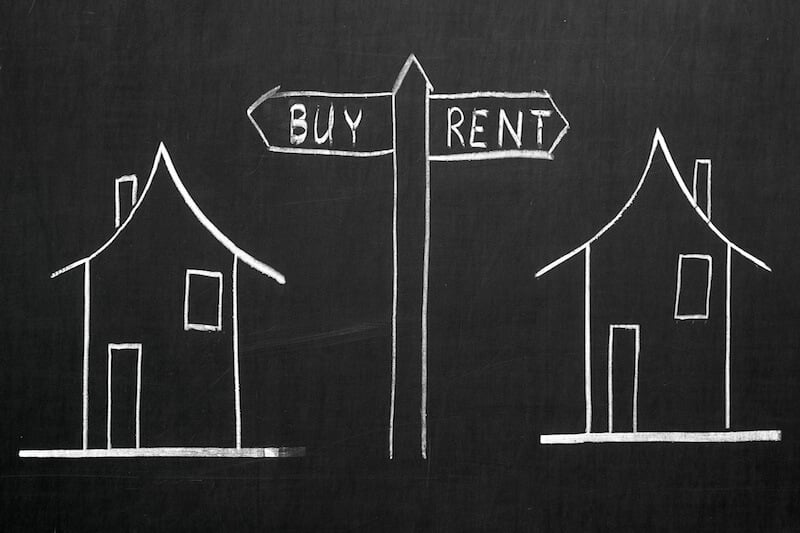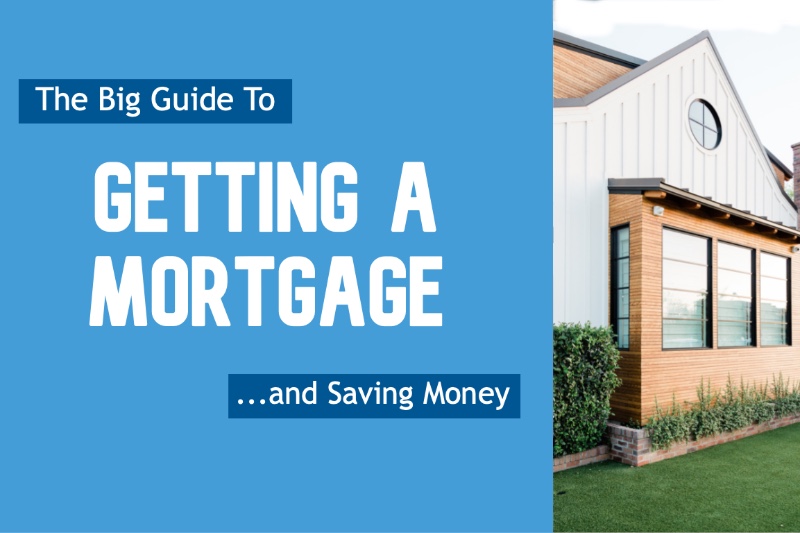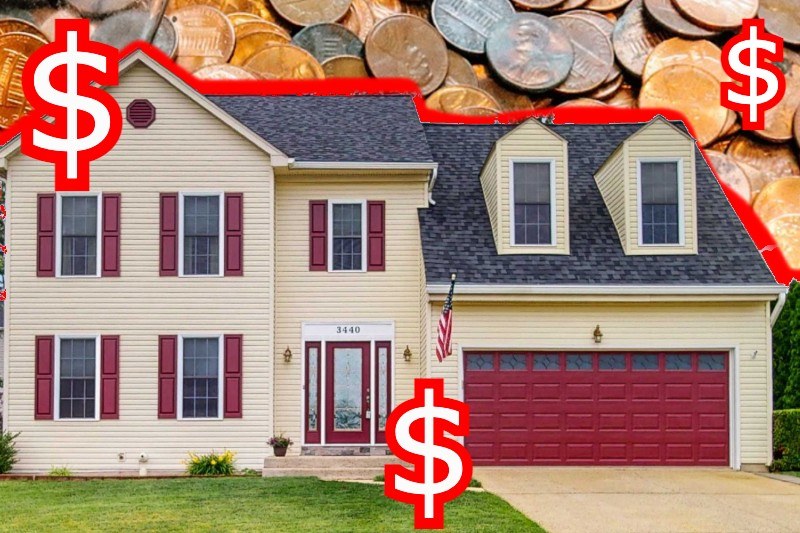For many, the thought of buying a home sparks a whirlwind of anticipation and, often, a healthy dose of anxiety. With a long list of financial details to consider, first-time homebuyers are easily overwhelmed. The biggest question that echoes through the minds of eager prospective homeowners is simple yet loaded with implications: How much house can I afford?
In this comprehensive guide, we'll review the complexities of this critical financial decision and provide a clear roadmap toward a confident home purchase. From assessing your down payment options to understanding what you can afford monthly, we'll ensure you step into the real estate market well-informed and empowered.
Get Personalized Advice
Can I Afford a House?
The desire to own a home is a deeply rooted part of the American Dream, but turning that aspiration into reality can be overwhelming. The first step to determining if you can afford a house is an audit of your financial health. Before you start touring (and falling in love with) homes, you need to take a hard look at your income, debts, and credit score.
Self-Evaluation Checklist
To kick-start your homebuying plan, here's a checklist of items to consider:
- Monthly Income After Taxes: This figure serves as the baseline for assessing your home-buying potential.
- Current Debt Obligations: From student loans to car payments, every dollar you owe reduces your ability to borrow for a home loan.
- Emergency Fund and Other Savings: Ideally, you should have enough saved to cover 3-6 months' worth of expenses, on top of your home buying savings.
- Credit Score Standing: Having a better credit score will help you secure the best mortgage rates.
- Employment History and Stability: Lenders look favorably upon a steady work history, which demonstrates consistent financial stability.
- Note: this does not mean you cannot purchase a home if you recently started a new job.
By honestly appraising these factors, you're equipping yourself with a realistic perspective on whether now is the right time to buy a home or if you need to take steps to strengthen your financial profile.
How to Afford a Down Payment
The down payment is often the most substantial barrier to homeownership for first-timers. Buyers often hear that they'll need a down payment of 20% of the home's purchase price—which is false. Many first-time buyers manage with less, thanks to a variety of programs and initiatives.
Local Down Payment Assistance Programs
For those struggling to amass a down payment, a down payment assistance (DPA) program might be the key. Local and state governments, as well as nonprofit organizations and employer-sponsored programs, sometimes offer assistance to qualified buyers.
Other Down Payment Strategies
- Leverage Existing Assets: If you have a 401(k) or other investment accounts, you might be able to withdraw funds for a down payment; however, this move should be carefully weighed against the implications for your retirement or investment strategies.
- Gift Money: Relatives can provide a gift for all or part of your down payment, which could substantially expedite your homebuying timeline.
- High-Earning Cosigner: Having a cosigner with a strong financial footing can increase your approval odds and potentially reduce your required down payment.
By exploring these and other options, a down payment can transform from a daunting hurdle into a manageable step towards homeownership.
How Much Can I Afford Monthly?
Beyond the down payment, it's essential to analyze what you can comfortably manage on a month-to-month basis. Your monthly payment will encompass more than just the mortgage—you'll also need to cover property taxes, homeowners insurance, homeowner association (HOA) fees if applicable, and mortgage insurance (PMI) if your down payment is less than 20%.
The 28/36 Rule
Financial advisors often tout the 28/36 rule as a reliable guide for home affordability. This industry standard suggests that you should not spend more than 28% of your gross monthly income on housing expenses and your total debt, including your mortgage, should not exceed 36%.
To apply this rule:
- Calculate Your Front-End Debt Ratio (28%): Your housing expenses (PITI—Principle, Interest, Taxes, and Insurance) should not surpass 28% of your gross income.
- Calculate Your Back-End Debt Ratio (36%): Account for your PITI as well as any other monthly debt obligations to ensure they collectively fall under 36% of your income.
This disciplined approach ensures you're not overextending your finances and helps you establish realistic expectations when shopping for a new home. While it's not a hard-and-fast rule, it's something to strive for—and a way to ease your mind.
Utilize a Mortgage Calculator
Mortgage calculators are invaluable tools for prospective home buyers, providing quick estimates of monthly payments and scenarios based on varying loan terms and interest rates.
Customizing Your Calculations
- Home Price and Down Payment: Adjusting the home price and down payment amount instantly recalculates your mortgage terms, giving you a clear idea of the tradeoffs between the two.
- Mortgage Duration: Increasing or decreasing the loan term significantly affects your monthly payments. However, bear in mind that longer loan durations might save you monthly, but cost you more in interest over the life of the loan.
- Interest Rate Sensitivity: Given that interest rates are a considerable component of your mortgage payment, slight fluctuations can represent significant changes in affordability. Talking to a number of lenders can help ensure you get the best rate possible.
Talk to a Professional
The most reliable guidance often comes from a seasoned professional who can tailor advice to your unique financial situation. Fortunately, these consults are usually free!
Finding the Right Advisor
- Seek a Reputable Mortgage Broker: A good mortgage broker will shop your application around to multiple lenders to find the best rates and terms.
- Connect with a Real Estate Agent: A knowledgeable agent can demystify the buying process and provide valuable insights into local markets and potential neighborhoods.
- Schedule a Financial Consultation: Meeting with a financial planner or advisor can help you align your home purchase with your broader financial goals.
During these consultations, come prepared with your self-evaluation checklist, mortgage calculator research, and any questions or concerns. The more active you are in the discussion, the more precise and useful the guidance will be.
Summary and Final Tips
In the realm of home buying, knowledge truly is power. By addressing the financial elements of your home purchase, from the down payment to monthly affordability and interest rates, you'll set yourself up for success throughout the transaction and beyond.
For a first-time home buyer, the initial venture into real estate can feel like a leap of faith. However, with the right preparation, research, and support, you'll find that it can also be the most rewarding investment you'll make. Take a deep breath, equip yourself with the tools and knowledge outlined in this guide, and realize that homeownership may be within your reach.



